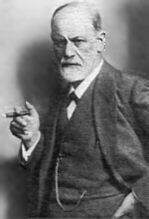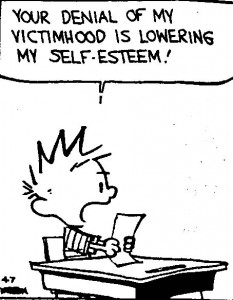In the wake of the Casey Anthony verdicts, I’ve heard a couple of comments that deserve a response. The first is that it’s rather ironic that the mainstream media was so exercised over the death of Caylee Anthony but that if Casey had aborted her, they would have treated her as a courageous young woman making a “difficult choice.” Spot on.
The second comment is that the reasoning of the jury indicates that we’re a society that no longer feels comfortable “judging” people. We’re afraid of being tabbed judgmental. This affects evangelicals as well, who often resort to the “judge not lest you be judged” mantra. I’ll come back to that later.
I don’t know for sure if the nonjudgmental mentality affected this particular jury. However, I can fully agree that as a society we have opted far too much for what we call tolerance. In the name of tolerance, we have tolerated abominations. How did we come to this place?
At the beginning of the twentieth century, as our elites shed belief in absolute truth based on a Biblical worldview, they substituted new ways of explaining man and his actions. For a while, behaviorism was all the rage. This school of thought posited that man is just a higher form of animal; he is a product of his environment, lacking real free will; consequently, he can be manipulated by stimulus-response techniques just like lab rats or Pavlov’s dogs.
 One behaviorist, Dr. John Watson, even claimed that children’s brains were blank sheets ready to be written upon, and that if given a number of infants, he could manipulate their environment sufficiently to turn them into whatever type of person he wished. The bottom line with behaviorism is that man is really not responsible for his actions—his environment determines what he will be. Therefore, there is no such thing as sin or genuine personal accountability for one’s actions.
One behaviorist, Dr. John Watson, even claimed that children’s brains were blank sheets ready to be written upon, and that if given a number of infants, he could manipulate their environment sufficiently to turn them into whatever type of person he wished. The bottom line with behaviorism is that man is really not responsible for his actions—his environment determines what he will be. Therefore, there is no such thing as sin or genuine personal accountability for one’s actions.
 As behaviorism’s influence waned, Freudian explanations came to the forefront. Sigmund Freud, the founder of psychoanalysis, claimed that the key to man’s behavior could be found in the subconscious [or unconscious]. Hidden deep within each person are urges that developed as a result of traumas at an early age. One might do horrendous things but be completely unaware of the reason for those actions. Instead of the environment, Freud tagged the subconscious as the determiner of all we do. Our unconscious wishes originate in childhood, and they are largely sexual in nature.
As behaviorism’s influence waned, Freudian explanations came to the forefront. Sigmund Freud, the founder of psychoanalysis, claimed that the key to man’s behavior could be found in the subconscious [or unconscious]. Hidden deep within each person are urges that developed as a result of traumas at an early age. One might do horrendous things but be completely unaware of the reason for those actions. Instead of the environment, Freud tagged the subconscious as the determiner of all we do. Our unconscious wishes originate in childhood, and they are largely sexual in nature.
Freudian psychology heavily influenced two arenas in our society: childrearing and criminal justice. Parents were told they are the problem; they create neuroses and psychoses in their children by demanding too much of them. Instead they should allow their children to follow their own desires. This led to a permissive-parenting mania that I think helped create the chaos of the 1960s.
In criminal justice, we were informed that criminals were not really evil, but merely victims of society and its pressures. We shouldn’t punish them, but focus instead on rehabilitation. One Freudian psychologist, William White, famously said that if you enter a room and find a man dead on the floor and another man standing over him with a gun that has just been fired, the most surprised person in the entire room is the man with the gun. He was not truly responsible for his actions.
As with behaviorism, the bottom line is that there’s always someone or something else to blame.
During the 1960s and 1970s, a time period where we nearly lost our collective minds, Rogerian psychology began to dominate. Formulated by Carl Rogers, and aided and abetted by Abraham Maslow, we were taught that we needed to achieve our full potential as human beings, and that nothing should stand in our way of achieving that goal. For instance, if a spouse is impeding your desires, put him or her aside and follow your own star. Essentially, they created a cult of self in which you become your own god. There is actually a lot of Eastern philosophy incorporated into this movement. The goal now was to meet one’s own needs before thinking of anyone else—supreme selfishness most often couched in the nice-sounding word “self-esteem.” Great. Now we created a generation that believed it had a license to do whatever it pleased, and it was “wrong” to stop them from “doing their own thing.”
As a result, we developed a philosophy of victimhood based on utter selfishness. What a glorious combination. Perhaps that’s what we have witnessed in the Casey Anthony mega-event.
Now let me briefly return to that so-called Scriptural admonition to be nonjudgmental. Here’s the text in context, found in Matthew 7:1-5:
Do not judge so that you will not be judged. For in the way you judge, you will be judged; and by your standard of measure, it will be measured out to you. Why do you look at the speck that is in your brother’s eye, but do not notice the log that is in your own eye? Or how can you say to your brother, “Let me take the speck our of your eye,” and behold, the log is in your own eye? You hypocrite, first take the log out of your own eye, and then you will see clearly to take the speck out of your brother’s eye.
Yes, there is a warning against improper judgment, but not against judgment itself. The admonition is that we are not to be hypocritical when we judge. We have to make sure first that we’re not just as guilty, but once we have taken care of that, we are told to go ahead and take the “speck” out of our brother’s eye as well. Therefore, this is not a passage saying we are never to judge; in fact, there are plenty of other scriptures telling us to do so explicitly.
Have we, as a society, imbibed false notions of personal accountability and judgment? You be the judge. Don’t worry—you can do that.





